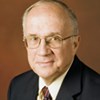Drs. Van Cott and McClure are professors of economics at Ball State University in Muncie, Indiana.
Americans comprise five percent of the world’s population, yet consume 25 percent of world’s economic pie. Left-leaning pundits, professors, and preachers delight in juxtaposing these statistics to “prove” that Americans are materialistic, wasteful, and overfed.
Many Americans accept this argument. What they overlook is that aside from international theft or philanthropy, any nation’s consumption standard is limited to what it produces. A nation consumes its production directly, and indirectly by trading with other nations. In this light, it follows that Americans consume 25 percent of the world economic pie because they produce at least 25 percent of the pie!
Could it be that Americans are “overworked”? After all, five percent of the people producing 25 percent of the output hardly seems an equitable apportionment of the work load. Maybe our self-styled humanitarians should praise Americans, rather than scorn them.
The Luck of the Draw?
Even when conceding that Americans produce what they consume, these professional social critics cling to the notion of “overfed” Americans by arguing that America’s claim on the pie is illegitimate. A popular argument is that a lucky draw of natural resources is the source of America’s high living standards. This undermines Americans’ claim by asserting that they are not responsible for the pie’s size.
A quick glance at a world atlas exposes the lucky draw contention as sophistry. For example, Hong Kong, Japan, the Netherlands, South Korea, and Taiwan succeeded without such draws. Indeed, Hong Kong’s draw didn’t even include fresh water! At the same time, Brazil, China, all of sub-Saharan Africa (except for South Africa), and the countries of the former Soviet Union are economically backward despite vast resource endowments.
It cannot be denied that the United States was blessed with abundant resources. The Brazils of the world make it clear, however, that the key is that Americans have been good stewards of their blessing. Rather than resource endowments, the inheritance that really matters is that bequeathed by the Founding Fathers: an economic system that encourages this good stewardship. In any event, to condemn U.S. living standards because of generous resource endowments is analogous to denigrating the achievements of Nobel Laureates because they have high IQ’s.
Economic Imperialism?
At other times, these so-called humanitarians argue that America owes its abundance to foreign investment by “imperialistic” U.S. multinational corporations. These corporations supposedly sap the strength of their host nations by repatriating profits to the United States. Moreover, because the profits allegedly caused the destruction of the host nations’ local indus tries, environment, and cultural heritage, the nations are victims of a corporate double whammy.
A sense of déjà vu attaches to this contention. It is essentially the same argument used to assail colonialism. History belies the notion that a colonial heritage predestines national penury the United States, Canada, and Australia were once colonies. Likewise, nations that were never colonies languish economically—Tibet, Liberia, Afghanistan, and Ethiopia are examples.
The evidence attesting to foreign investment’s positive role in economic development is overwhelming. Except for England, no nation has developed without the active involvement of foreign investors in its economy. The post-World War II experience of Pacific Rim countries—South Korea, Singapore, Taiwan, Hong Kong is one recent example of the power of this engine of economic growth.
At the other end of the spectrum lies the former Soviet Union and its economic pup-pets: They actively discouraged foreign investment and their underfed people are still paying the price.
Are Americans, Then, Overworked?
If economic abundance is assured neither by the luck of the draw nor by economic imperialism, must we conclude that Americans are overworked? No, the sources of a nation’s output of goods and services go beyond its physical inputs. Americans appear to be overworked only because the Founding Fathers bequeathed them an economic system that magnifies the results of their work effort.
More than 200 years ago Adam Smith saw that actions of self-interested people can, unbeknownst to them, enhance their nation’s economic pie. In Smith’s famous words, people can be “led by an invisible hand to promote an end which was no part of [their] intention.” Open markets and secure property rights are the hand’s lifeblood.
These institutions give entrepreneurs an incentive to seek out consumers who value their products highly. At the same time, consumers have an incentive to discover producers who provide goods at least cost. The invisible hand is as much an input in production processes as are land, labor, and capital. Thus, Americans are more productive because the invisible hand is their ever-present helping hand.


